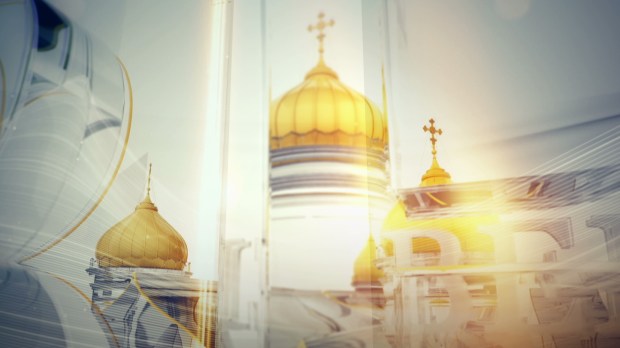Lenten Campaign 2025
This content is free of charge, as are all our articles.
Support us with a donation that is tax-deductible and enable us to continue to reach millions of readers.
Moscow Patriarchate: Is Joe Biden a Catholic?
Official Website of the Moscow Patriarcate (Mospat.ru), Russian
Metropolitan Hilarion of Volokolamsk, chairman of the Moscow Patriarchate Department for External Church Relations, ha respondido en una entrevista televisiva a la pregunta de si Joe Biden puede decirse católico y promover abiertamente el aborto.
“When people talk about ‘Catholic Biden’, I always want to ask the question: What, in fact, is Biden’s Catholicism? The Catholic Church is against abortion, and Mr. Biden is for it. Is he doing it as a Catholic or as the president of the United States? Is he doing it out of the dictates of his conscience or out of political expediency? A man cannot call himself a Catholic and yet violate and call for the violation of the fundamental norms of Christian morality”.
Euthanasia in Portugal: Catholic jurists consider the vote “Even More Illegitimate”
Agência Ecclesia, Portuguese
The Association of Catholic Jurists of Portugal (AJC) considered “even more illegitimate” the decision to vote on the new law on euthanasia in Portugal, which the Assembly of the Republic, the parliament, will discuss this Thursday.
Portuguese president, Marcelo Rebelo de Sousa, announced on November 1 he will dissolve the parliament on Thursday, the same day of the vote of the law on euthanasia.
“This is an opportunistic maneuver that prevents a minimum public discussion of the version of the law subject to discussion (since this version has not even been published so far) and aims to prevent that this issue, of such importance, is now subject to discussion in the next electoral campaign,” notes the AJC.
US Bishops Eucharist draft document focuses on real presence, not Communion denial
The Pillar, English
The Pillar obtained the draft text of a document on the Eucharist, currently being prepared by the United States Conference of Catholic Bishops (USCCB), and which should be discussed in their November 2021 plenary assembly. The draft text dates from September and was distributed to Bishops in October. When the idea to draft a document on the Eucharist was first mentioned in June there was debate amongst the American Bishops on whether the text should directly address the issue of giving communion to important Catholic politicians who support abortion, such as President Joe Biden and House Speaker Nancy Pelosi. The Pillar explains that the draft text does not in fact give recommendations for the denial of Communion, but rather focuses “mostly on the Eucharist as a gift, as the real presence of Christ, and as a sign and cause of of communion with Christ and his Church.”
The Pillar explains the the draft text cites also a 2006 document by the USCCB on the Eucharist which says that if a Catholic “knowingly and obstinately” rejected the Church’s “teaching on moral issues” in personal or professional life he should not take communion.
–
Seminarians in Italy: how many and who they are, the numbers of tomorrow’s Church
SIR, Italian.
Based on data from the National office for the pastoral care of vocations of the Italian Episcopal Conference and the annual directory of the Holy See, the press Agency SIR offers a portrait of the current situation of seminaries and seminarians in Italy. Since 1970 there has been a decline of over 60% in new vocations in the Church. The article explains this reduction goes beyond the demographic decline that Italy has been experiencing in the last years with very few births.
Today there are 1804 diocesan seminarians who live in the 120 major seminaries across the country. They have an average age of 28,3 and are mostly located in the Lombardy and Lazio region. 10% of the total are foreigners, mostly from Africa. The article also offers other data on the family composition and education level of the seminarians.
—
Nicaragua: Government and Catholic Church at odds over Sunday’s elections
Vozdeamerica.com, Spanish
The Catholic Church has played an important role in Nicaraguan politics. From mediator of armed conflicts to victim of state repression. Today it is one of the most critical voices regarding the government of Daniel Ortega and the presidential elections this Sunday.
The confrontation between the Catholic Church and the ruling party began after the triumph of the Sandinista Revolution in 1979. But the clergy played an important role in the peace accords that ended the civil war at the end of the 1980s.
Currently, President Daniel Ortega and members of his party accuse the bishops who make up the Episcopal Conference of conspiring against his government.

